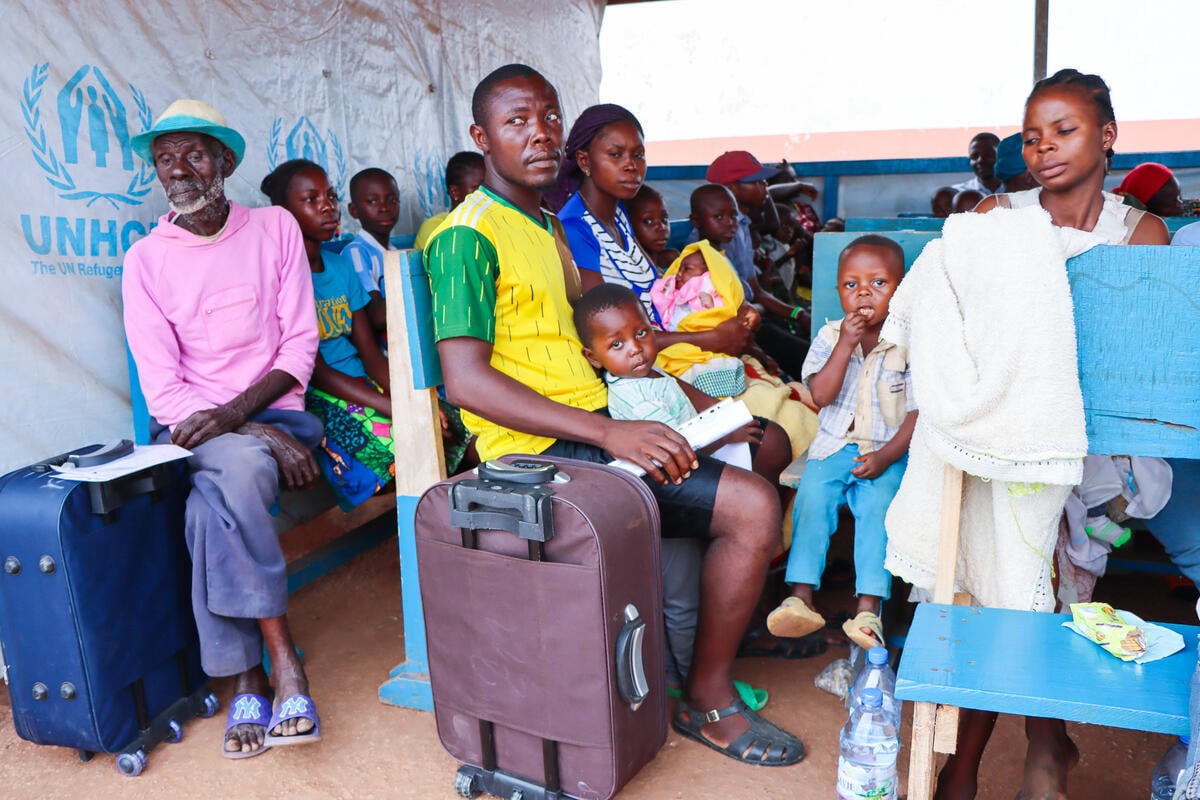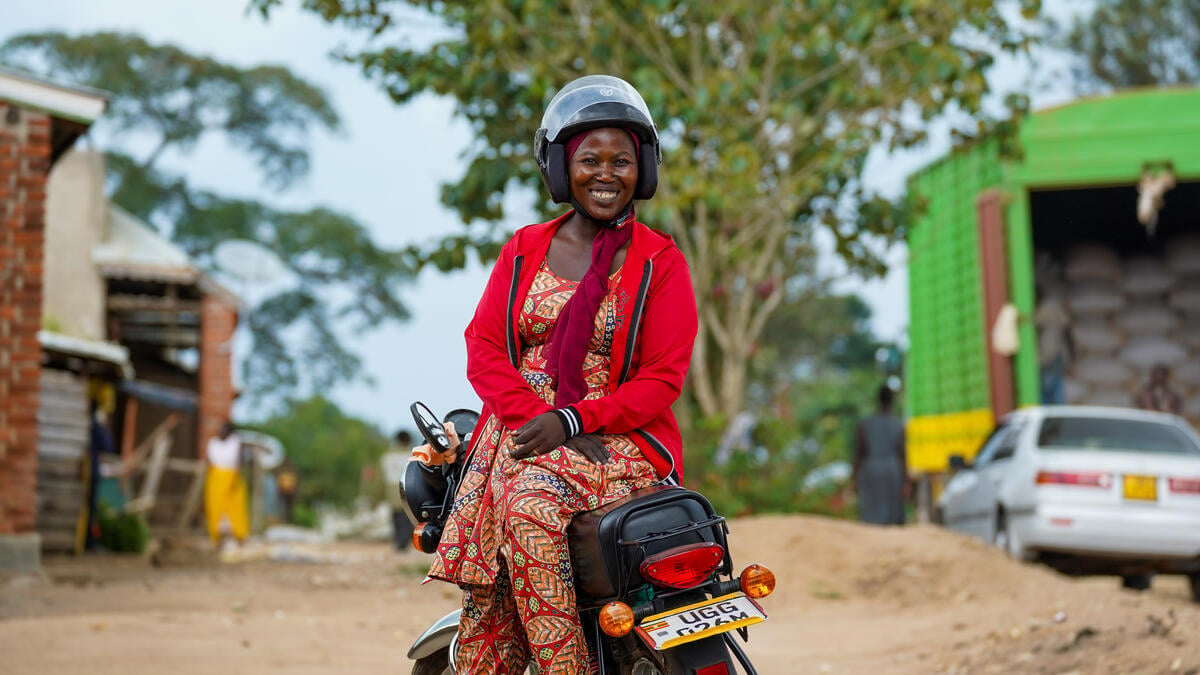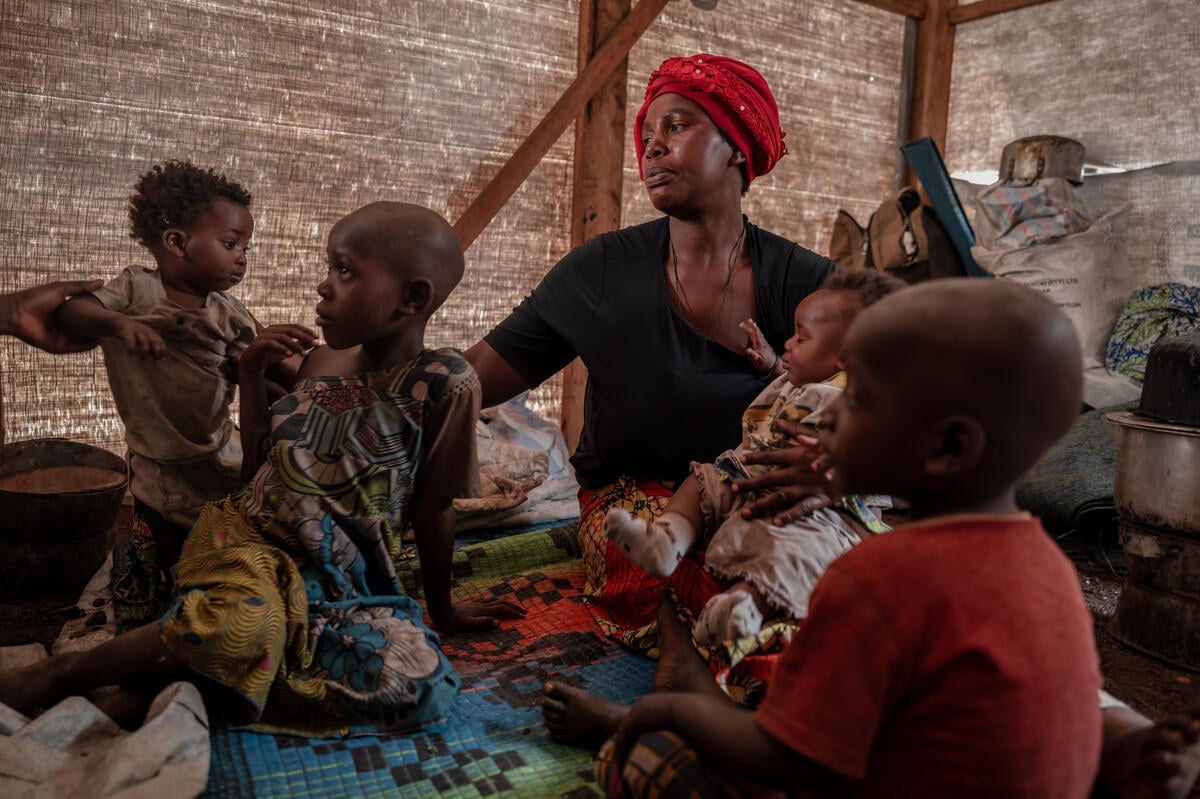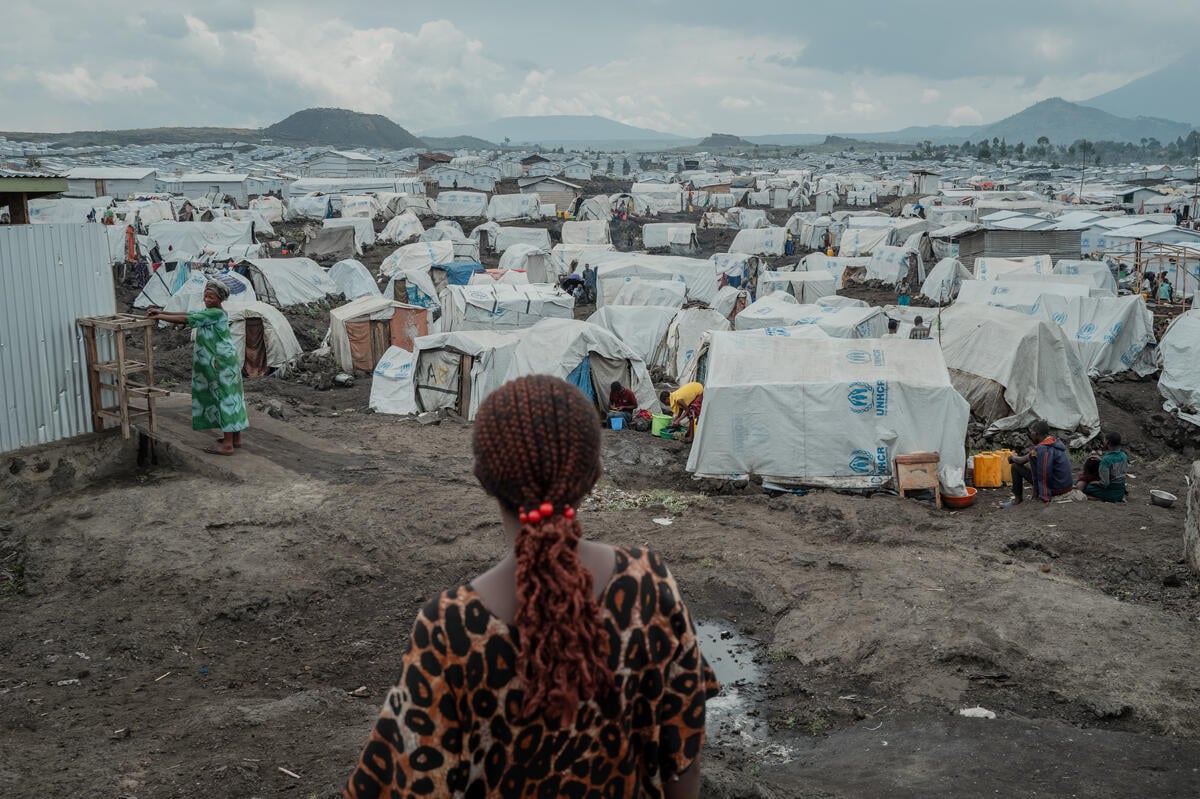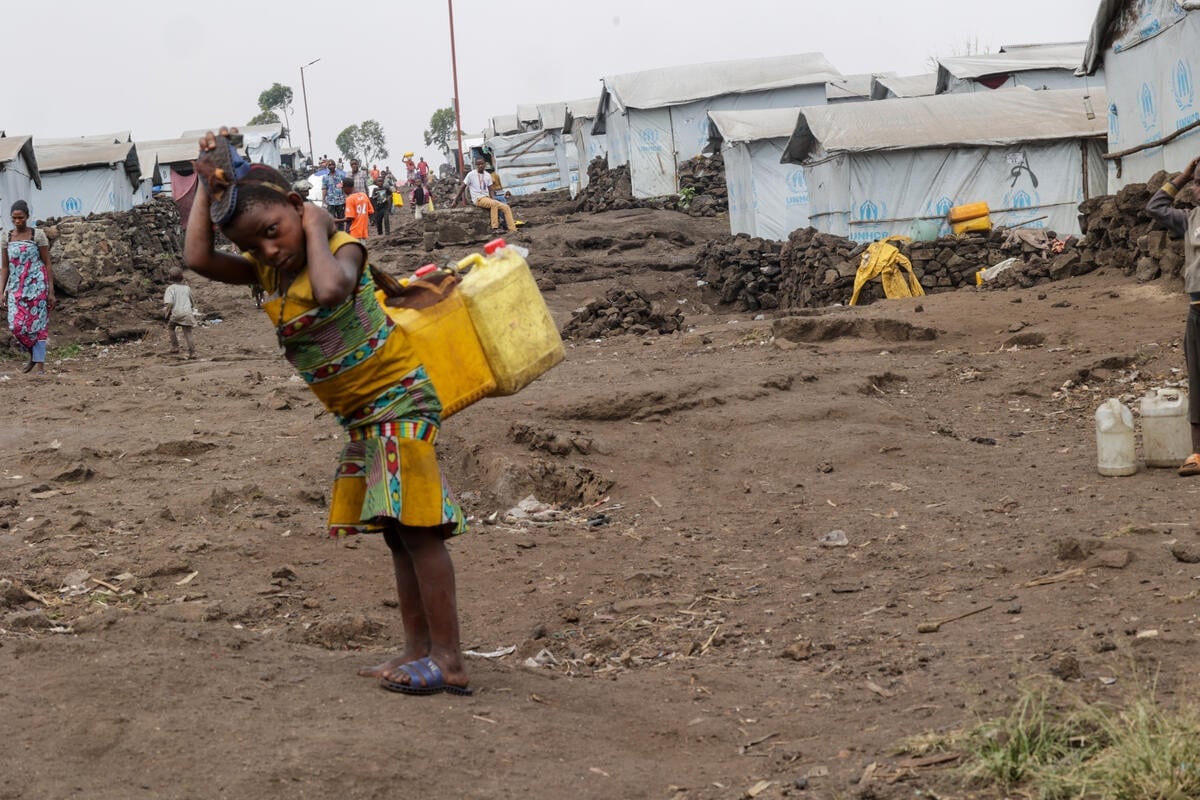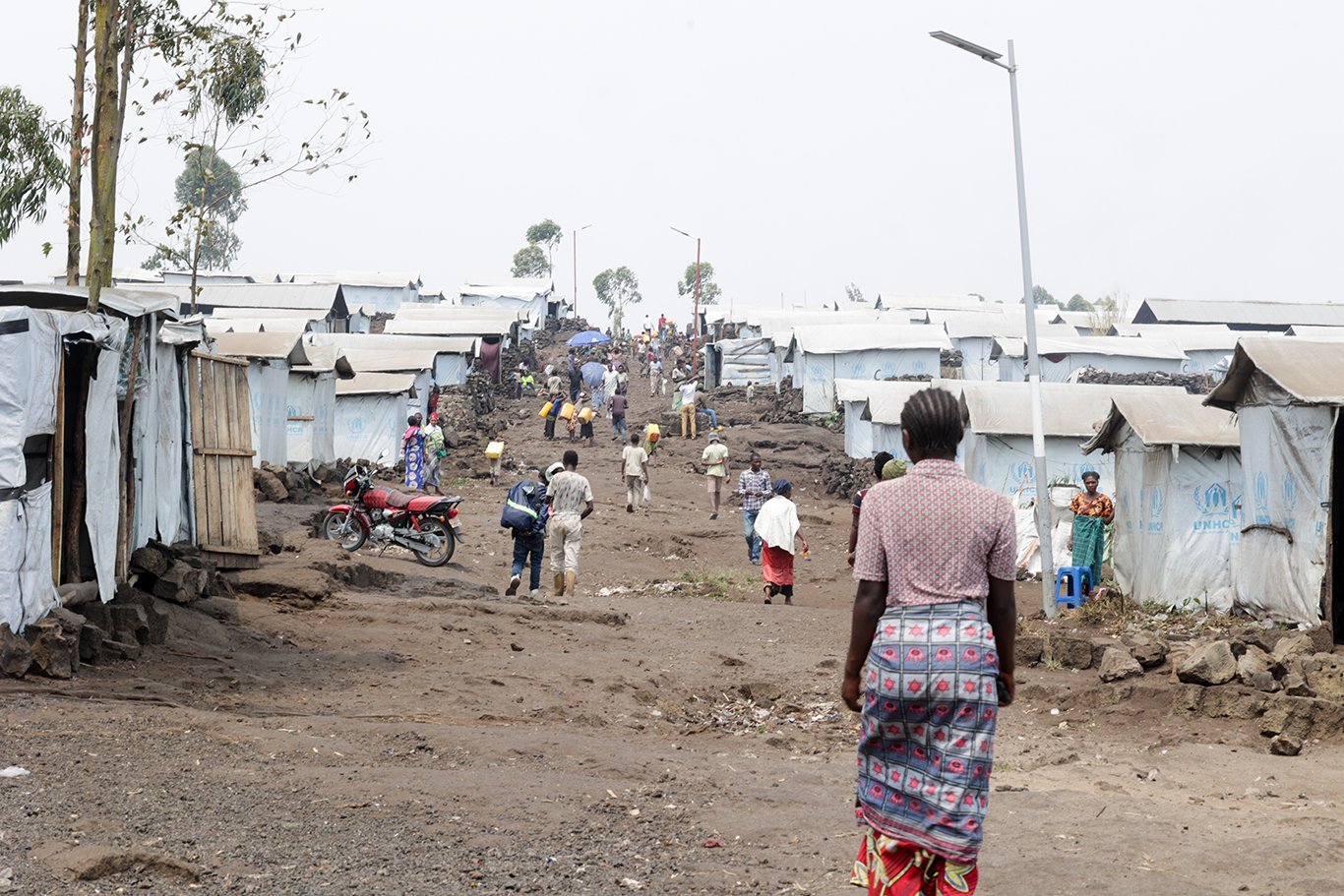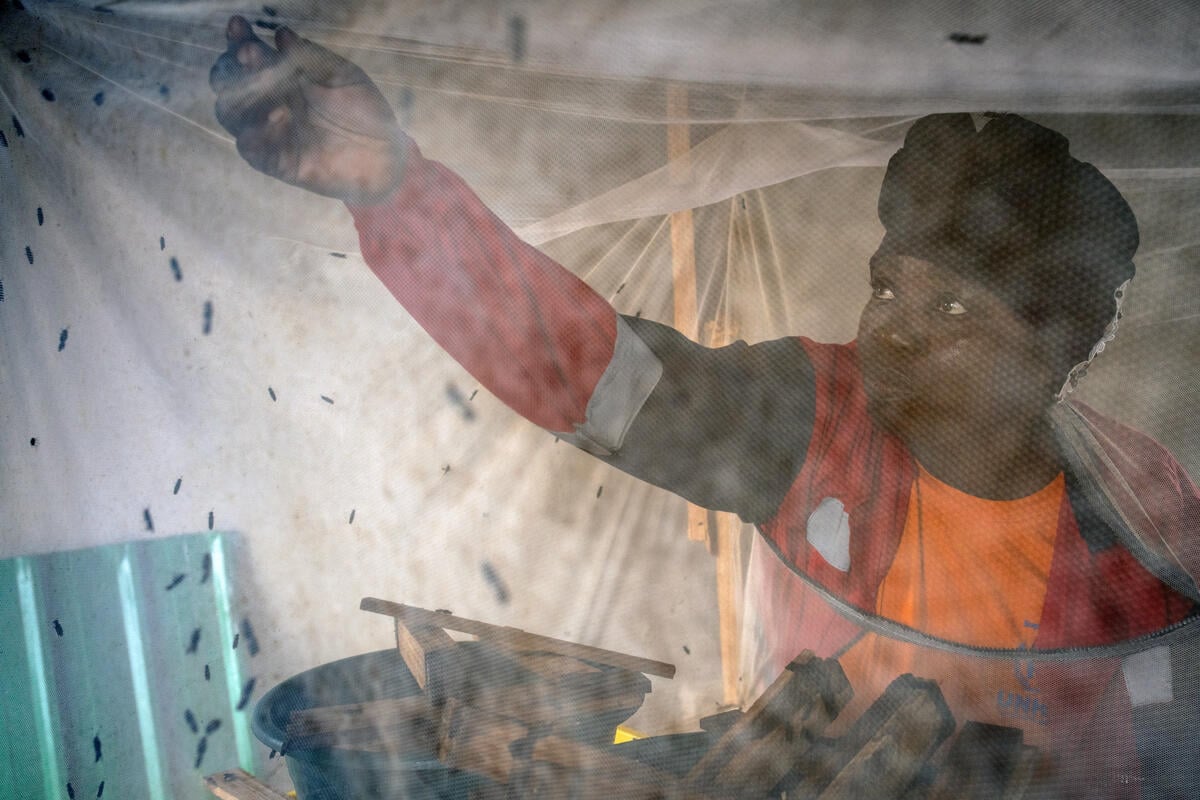Angola: thousands flee to DRC
Angola: thousands flee to DRC
Alleged rebel attacks in Angola have driven thousands of people into neighbouring Democratic Republic of Congo. A UNHCR team is scheduled to travel from DRC's capital, Kinshasa, to the border zone today to assess the needs of as many as 7,400 Angolan refugees who have crossed into the Democratic Republic of Congo (DRC) in the past two weeks, fleeing alleged attacks by UNITA rebels in the north-western Angolan province of Uige.
The new arrivals are concentrated around the Congolese towns of Kimvula in southern Bas Congo and Popokabaka and Kasongo-Lunda in Bandundu province, some 300 kilometres south-east of Kinshasa. An elderly refugee, who was chief of his village in north-eastern Angola, told UNHCR that armed groups recently attacked several villages near the border driving the civilian population into hiding or into the DRC. Around 2,400 refugees are being sheltered by the Congolese population in Kimvula.
Angolan government forces regained hold late last year of portions of Uige province. Refugees, however, say that UNITA forces still control much of the territory in the north-east corner of that province. Today's mission by road will include UNHCR medical, protection and operations personnel, a representative of the World Food Programme as well as local authorities and is expected to last four days. After establishing the condition of refugees in Kimvula and providing assistance, the team will attempt to reach the more remote towns of Popokabaka and Kasongo-Lunda. Reports from officials and religious sources in those areas say that around 5,000 refugees have arrived over the last two weeks.
UNHCR has emergency relief supplies for approximately 10,000 people stockpiled in the town of Kimpese, two to three days away from Kimvula by truck. UNHCR assists 110,000 out of the estimated 177,000 Angolan refugees in the DRC. An estimated 40,000 of these are in the Kimpese area in the Bas Congo province, south of Kinshasa.


